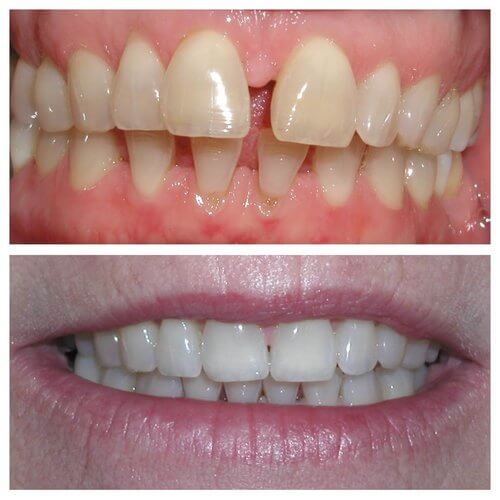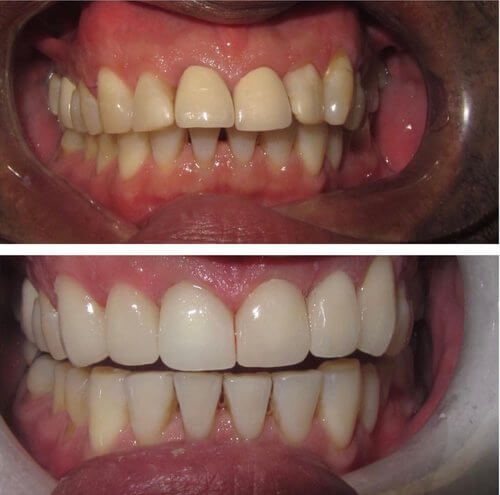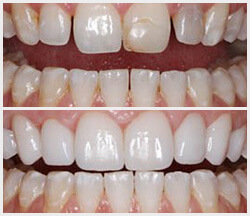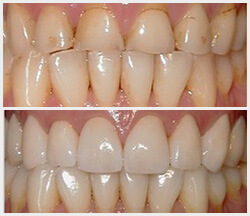A Comprehensive Guide to the Development of TMD
Temporomandibular Joint Disorder, or TMD, is a common condition that affects the joints and muscles of the jaw. While the exact causes of TMD aren’t always clear, several risk factors and preventive measures can help reduce the risk of developing this condition.
Learn more about the causes of TMD and when it’s time to visit our Staten Island dentists.
Risk Factors for TMJ Disorders
Common TMD risk factors include:
- Gender: Women are more likely to develop TMJ disorders than men, possibly due to hormonal differences and increased prevalence of conditions such as fibromyalgia and chronic fatigue syndrome.
- Age: TMJ disorders are most common in individuals between the ages of 20 and 40, although they can develop at any age.
- Genetics: There may be a genetic component to TMJ disorders, as some individuals may inherit a predisposition to this condition.
- Poor Posture: Poor posture can strain the muscles of the neck and jaw, leading to TMJ disorders.
- Sleep Apnea: There may be a link between sleep apnea and TMD.
Having one or more of these risk factors doesn’t necessarily mean that an individual will develop a TMJ disorder. However, by addressing and managing these risk factors, individuals can reduce the likelihood of the condition occurring.
If you’re experiencing symptoms of TMJ disorders, consult with your dentist for an accurate diagnosis and treatment plan.
Common Causes of TMJ Disorders
There are various causes of TMJ disorders. These include but aren’t limited to:
- Injuries: Trauma to the jaw or face, such as a blow or whiplash, can damage the jaw joint and surrounding muscles and cause TMJ disorders.
- Teeth Grinding or Clenching: Bruxism, the habit of grinding or clenching teeth, can put excessive pressure on the jaw joint and lead to TMJ disorders.
- Arthritis: Arthritis, particularly osteoarthritis and rheumatoid arthritis, can damage the jaw joint and lead to TMJ disorders.
- Stress: Chronic stress can cause tension and tightness in the muscles of the jaw and face.
- Dental Problems: Dental conditions such as misaligned teeth, overbites, and underbites can stress the jaw joint and lead to TMJ disorders.
- Joint Degeneration: Over time, the cartilage in the jaw joint can degenerate, leading to TMJ disorders.
When It’s Time to See the Doctor
If you’re at risk for developing a TMJ disorder and regularly experience symptoms, you should consult with a healthcare professional for an accurate diagnosis and appropriate treatment plan.
Symptoms that may indicate it’s time to see the doctor, include:
- Persistent Pain: If you’re experiencing persistent pain in the jaw, face, or ear, it may be a sign of TMJ disorders. Severe pain that interferes with daily activities or doesn’t improve with self-care measures should prompt a visit to the doctor.
- Limited Jaw Movement: If you’re having difficulty opening or closing your mouth, or if your jaw feels stiff or locked, it may be a sign of a TMJ disorder.
- Clicking or Popping Sounds: If you hear clicking, popping, or grinding sounds when you open or close your mouth, it may be a sign of a TMJ disorder. While some people may experience these sounds without any associated pain or discomfort, they can also be a sign of joint dysfunction.
- Changes in Bite: If your bite feels off or your teeth don’t seem to fit together, it may point to TMD.
- Headaches: Headaches, particularly those in the temples or around the eyes, can indicate TMD.
Frequently Asked Questions
Can TMJ disorders be prevented?
Yes, there are some steps you can take to prevent TMD. While TMJ disorders cannot always be prevented, several preventive measures can reduce the risk of developing this condition. These include practicing good oral hygiene, avoiding hard and chewy foods, managing stress, and maintaining good posture.
Who is most likely to get a TMJ disorder?
Anyone can develop a TMJ disorder, but women between the ages of 18 to 44 are more likely to experience this condition. Additionally, those with a history of arthritis or other joint problems may be at a higher risk of developing TMJ. Consult your doctor if you believe you have the beginning symptoms of TMD.
Does TMJ develop suddenly?
It depends. TMJ can develop suddenly, but it can also develop gradually over time. Some people may experience mild symptoms that worsen over time, while others may experience a sudden onset of severe symptoms.
What does the beginning of TMJ feel like?
The beginning of TMJ can feel like tenderness or pain in the jaw, particularly when chewing or speaking. Some people may also experience a clicking or popping sound when moving their jaw. As TMJ progresses, the pain may become more severe, and other symptoms, such as headaches and ear pain may also develop.
Determine the Root Cause of TMD and Seek Proper Treatment
If you’re experiencing symptoms of TMD, such as pain or tenderness in the jaw, difficulty opening or closing the mouth, or clicking or popping sounds when moving the jaw, consult your dentist. They can provide an accurate diagnosis and recommend an appropriate treatment plan to help alleviate your symptoms and improve your quality of life. Call our Staten Island office to schedule a consultation today.



Insurance
We accept many insurances. Please contact one of our Insurance Coordinators to discuss your dental coverage plan.
(718) 948 5111
appointments@sidental.com
Open 7 days a week
Reviews
The dentists are absolutely excellent…
“I have been going here for years. The dentists are absolutely excellent and they always have an appointment available that fits into a busy schedule. I also completed invisilgn and my teeth are perfectly straight now. They also practice preventive medicine and just went in for my 6 month cleaning. Every time feel like I have a new set of choppers and best yet the check up noted no cavities!.”
— J.R
Pleasant visit
“As usual, it was a pleasant visit thanks to Dr. Nasso and her great staff..”
— C.M.
Always treated with courtesy and respect.
“Always treated with courtesy and respect. All of my questions were answered regarding upcoming treatments..”
— J.C.
Smile Profile




Put your best face forward.
Create a positive change to your teeth and your smile.
